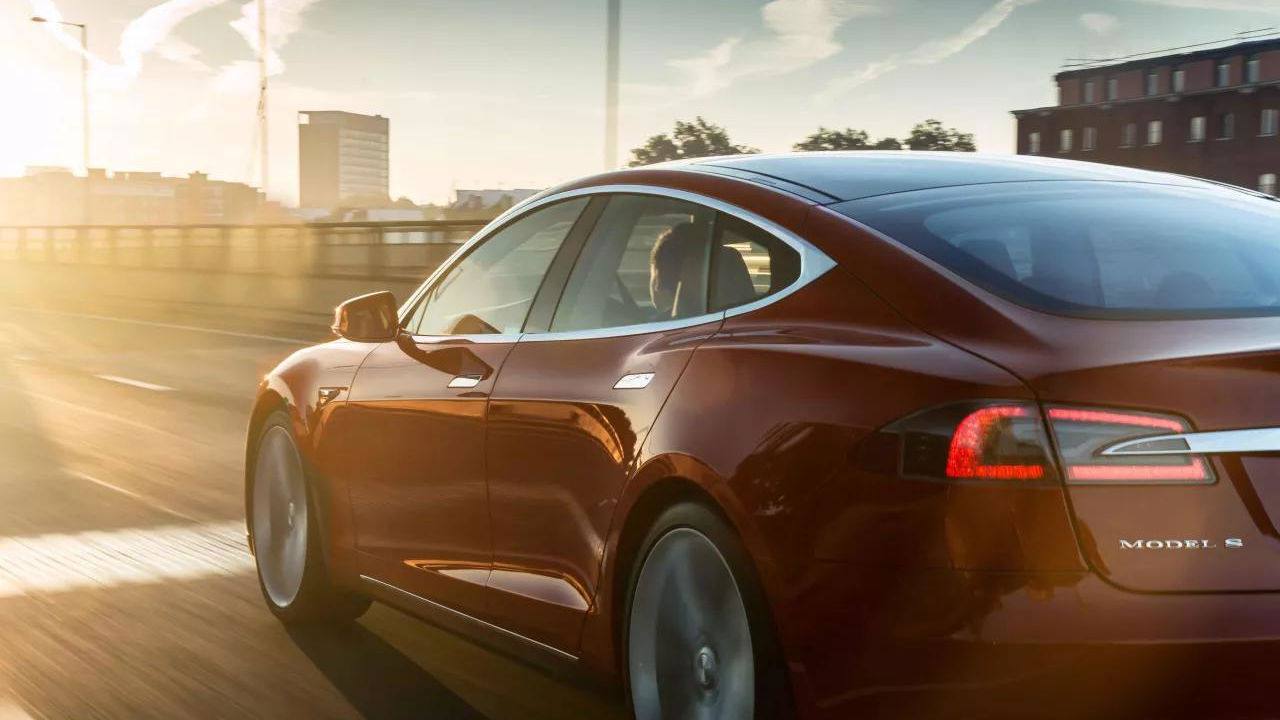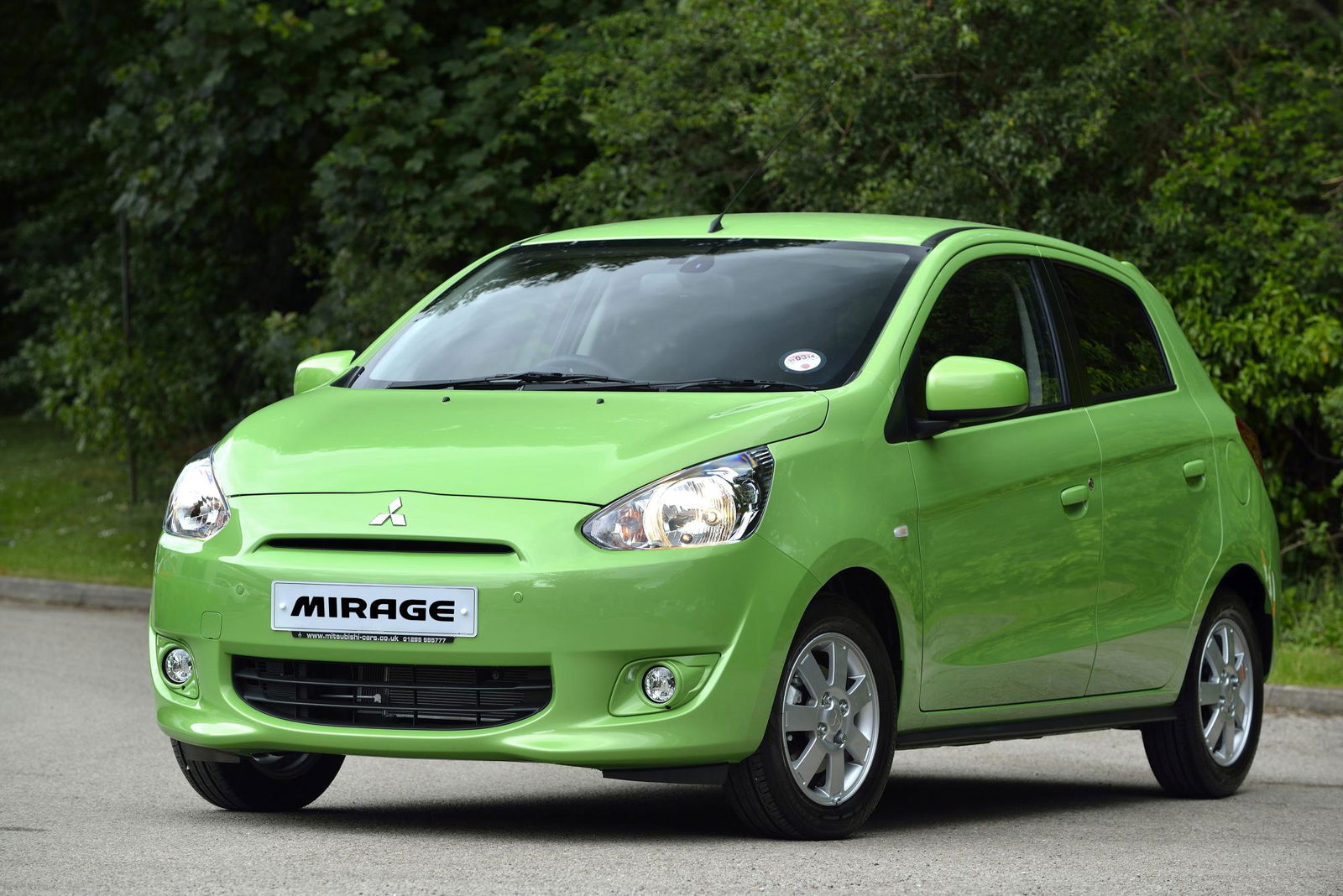The Tesla Model S Apparently Puts Out More Whole-Life Emissions Than A Petrol Supermini

Oh dear. The electric-powered Tesla Model S has been found to produce more whole-life carbon dioxide than a petrol supermini.
The Massachusetts Institute of Technology (MIT), which whom Lamborghini is working on future battery tech, studied a group of cars’ production methods, exhaust emissions, potential for recycling and any emissions produced by power plants for the quantity of electricity required, if any.

While the researchers say that emissions from distant power plants are the lesser of two evils when it comes to city centres, the Model S was responsible for 226g/km of CO2 during its lifetime compared to just 192g/km for the humble Mitsubishi Mirage supermini.
Admittedly, we know which one of the two we’d rather put on our driveways, but 34g/km is a significant difference. It’s fresh evidence to back the theory that electric cars are actually no cleaner overall than small petrol ones, although we’d like to see a fairer-looking comparison between, say, a Nissan Leaf and a Volkswagen Golf.

Against a more comparable car, the BMW 750 xDrive, the Model S was reportedly some 159g/km better for the planet over its entire several hundred thousand kilometre lifetime.
It also matters how the Model S in the study gets its energy. In the American Midwest, it may be coal-fired power stations. Parts of northern Europe, for example, are now heavily supplied by renewables. The argument will rumble on…
Source: Auto Express
Comments
does it take in to account that the “life” of electric cars are likely to be a lot longer than that of a petrol car? i doubt the mini would do 300,000 Km during its “life”
I only like EVs because of the instant torque, and cuz theyre quiter
In Norway where EVs are huge the energy is over 90% renewable. Here in the UK on-shore Wind is cheaper than coal and off-shore Wind energy is cheaper than nuclear. In the Pacific North West their energy like Norway is mostly hydro and wind as it is in Quebec. Every day the grid is getting cleaner.
somewhat encouraging that one has to go to extremes to find an example of an EV marginally out-polluting an ICE: a small subcompact car (about 1 ton) vs a relatively luxurious EV (about 2.3 ton) using coal generated electricity.
“..all electric vehicles produce fewer emissions over the lifecycle than conventional cars of the same weight class, and this holds true even when the electricity grid that powers them is mostly generated by fossil fuels, such as in Poland..In a few places with very high reliance on electricity from carbon-intensive sources such as coal, electric vehicles don’t provide added benefit over hybrids,” … “But both hybrids and electric vehicles are better than conventional cars in these emissions-intensive locations.”
https://www.ft.com/content/a22ff86e-ba37-11e7-9bfb-4a9c83ffa852
Hmm. I wonder why its not compared with a Lamborghini.
I expect better from MIT. The energy required to fuel the mini is not even discussed. Energy required to power the construction and battery isn’t compared against the complete construction and fueling of a COMPARABLE sized ICE car. Energy required to recharge the battery depends upon how electricity is generated. When the power plants are converted from fossil fuel to renewable, then your EV becomes greener. Your ICE car will burn petrol for its entire life span, irrespective of what happens to electricity generation power plants. So many obvious errors, so little time.
Well..not bad for a 700hp 2000kg 7 seater.
Who cares? Test drive one and traditional cars will feel inadequate instantly. I miss my model 3. :-(
Anyone who thinks the majority buys a Tesla for the environment is a jealous moron.
How is comparing a small city car to a large luxury saloon any form of comparison?
If you really want to reduce your footprint the best way is to buy something used or preowned that doesn’t emit much pollution, say a used Prius, Leaf or fuel efficient petrol car and drive that as long as you can.
Pagination